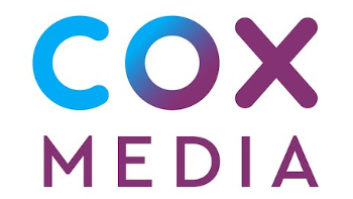Streaming Under Attack
Jul 1, 2001 12:00 PM, By Harry Martin
Webcasters that survived the Copyright Office’s December royalty decision have been dealt another nearly fatal blow. Beginning this year, radio stations nationwide have been receiving notices from advertising agencies demanding that they stop streaming the commercials of the agencies’ clients over the Internet or face liability for breach of contract.
Last fall, advertising agencies signed a new contract with the American Federation of Television Artists (AFTRA), which represents actors who voice radio commercials. The new contract pays the actors 300% of their normal fee if radio stations play their ads on the Internet as well as on the radio. These fees must be paid by the advertisers and advertising agencies, not by the radio stations.
As a result, advertising trade groups began sending advertisers letters reminding them of higher royalty fees. In turn, advertisers and advertising agencies have been ordering broadcasters who stream their signals on the Internet to stop streaming their made-for-radio commercials.
Currently, there are two kinds of streaming: passive and active. Passive streaming occurs when a radio station simply streams its entire broadcast over the Internet without consent or advance notice. Active streaming, however, occurs when a radio station either offers streaming of commercials to advertisers as a value added feature and/or charges a premium for streaming. In active streaming situations, the advertiser or agency has advance knowledge of the streaming and has either approved or authorized the streaming of its clients’ commercials. However, both types of streaming commercials trigger the advertisers’ and advertising agencies’ obligation to make the increased talent payments.
As a result of the agency notices, numerous stations have ceased simultaneous streaming of their stations, and others have sought to delete or cover up the affected commercials. There are a few stations, however, that have agreements with AFTRA that allow Internet broadcasts of commercials at no extra cost.
Stations that simultaneously stream their signals should carefully review their media contracts to determine whether they contain provisions that limit the authorization to stream to situations in which the advertiser or agency has provided written authorization. It is important to identify the advertiser’s or ad agency’s position. Station-friendly provisions contain language that holds the station harmless for streaming commercial matter.
Pending notification from advertisers and advertising companies, stations may continue to stream commercials. If and when a station receives notice, it can either stop streaming altogether or delete or cover up the affected commercials. If a station chooses to cover up the affected commercials, it may want to consider the option of ad insertion technology. Essentially, ad insertions are Internet-only ads that take the place of over-the-air ads. By using such technology, stations can avoid the liabilities associated with the streaming of made-for-radio commercials.
The American Association of Advertising Agencies and the Association of National Advertisers, which represent the interests of advertisers is negotiating with SAG and AFTRA for lower rates, but no relief is on the horizon.
Newspaper-radio on hold
Chairman Michael Powell withdrew the broadcast-newspaper cross-ownership notice of proposed rulemaking from the May meeting agenda. Powell had expressed interest in re-examining the rules, stating: �I don’t know why there is something inherent about a newspaper or a television station that means they can’t be combined.� However, disputes between the then sitting Commissioners, especially between Commissioners Tristani and Furchtgott-Roth, over the wording of the Notice of Proposed Rulemaking, forced Powell to pull the item for the time being.
Commissioner Tristani reportedly did not wish to include language in the NPRM that indicated a willingness to ease restrictions. Commissioner Furchtgott-Roth, on the other hand, was unwilling to include language that suggested that there was any justification for retaining even the current restrictions. While Commissioner Ness was willing to begin a rulemaking, she too was seeking concessions.
It is expected that this notice will be deferred until the three new Commissioners, recently sworn in, become familiar with the issues.
Harry Martin is an attorney with Fletcher, Heald & Hildreth, PLC., Arlington, VA. E-mail[email protected].
Dateline
Commercial and noncommercial radio stations in the following states must file their biennial ownership reports on or before August 1: California, Illinois, North Carolina, South Carolina and Wisconsin.
July 10 is the deadline for placing in stations’ public files their quarterly lists of community problems and responsive programming broadcast during the period April 1 � June 30.












